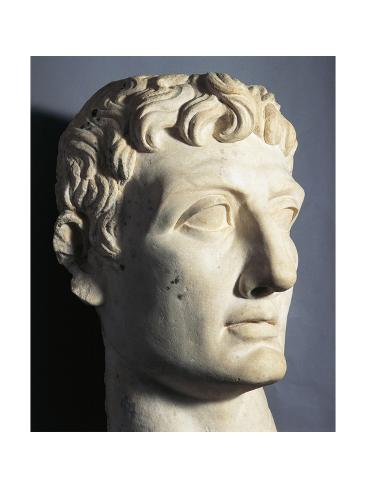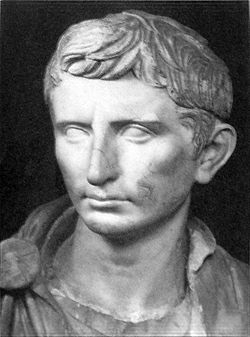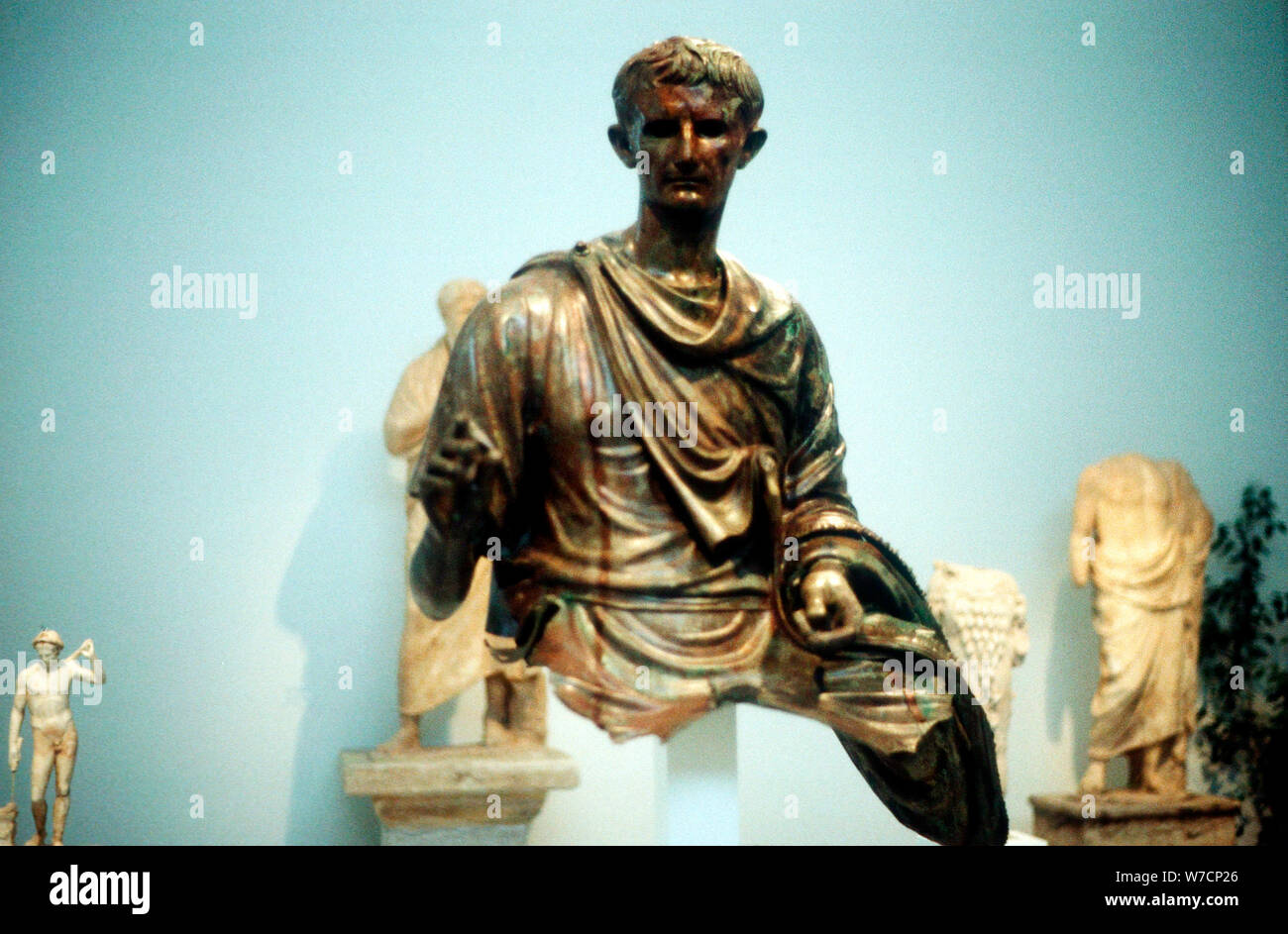

So strictly did Augustus himself adhere to his laws that he banished his own daughter, Julia, and his granddaughter, for adultery. He passed many sweeping reforms as well as laws to maintain stability in marriage and to raise the birth rate in Rome, making adultery illegal, offering tax incentives to families with over three children and penalties for childless marriages. Augustus took great personal concern in the arts and was a personal patron of many artists. The famous public Roman baths were constructed under Augustus by his second-in-command, Agrippa, and the poet Virgil composed his epic the Aeneid. In his famous inscription Res Gestae Divi Augusti (The Deeds of the Divine Augustus) he claims to have restored or built 82 temples in one year. An ambitious building program was initiated in which Augustus completed the plans made by Julius Caesar and then continued on with his own grand designs. The peace which Augustus restored and kept (the Pax Romana) caused the economy, the arts and agriculture to flourish. The era of Augustus' reign was a golden age in every respect. Octavian had Caesarion strangled (stating that “two Caesars are one too many”) and Antony's eldest son executed as a possible threat to Rome. At the Battle of Actium on 2 September 31 BCE Octavian's forces, under the general Marcus Agrippa, defeated the combined forces of Antony and Cleopatra, scattered them (many had already defected to Octavian's side before the battle) and pursued the survivors until 1 August 30 BCE when, after the loss of Alexandria, Antony and Cleopatra killed themselves. The Senate revoked Antony's consulship and declared war on Cleopatra VII. The will gave away Roman territories to Antony's sons and contained directions for a great mausoleum to be built in Alexandria for Antony and Cleopatra, among other stipulations which Octavian felt threatened the grandeur of Rome and branded Antony a renegade.Īmong the worst of Antony's offenses was his declaration that Caesarion was the true heir of Julius Caesar, not Octavian. He forced the priestesses of the temple of Vesta in Rome to surrender Antony's will and had it read in the Roman Senate. To Octavian, Antony's behavior in the east, both in private, politically and militarily, was intolerable. Does it really matter where, or with what women, you get your excitement?” Octavian charged that Antony had misused his sister when Antony divorced Octavia in favor of Cleopatra in 33 BCE which prompted Antony to write Octavian, “What's upset you? Because I go to bed with Cleopatra? But she's my wife and I've been doing so for nine years, not just recently.

Antony, though, had allied himself closely with Cleopatra VII of Egypt (the former lover of Julius Caesar and mother of his son Caesarion) and, in fact, had become her lover. In 40 BCE, in an effort to solidify their alliance, Octavian had given his sister, Octavia Minor, in marriage to Antony. Augustus, Antony & Cleopatraĭuring this time, however, relations between Octavian and Mark Antony began to deteriorate. Lepidus was stripped of all his titles save Pontifex Maximus and the Second Triumvirate came to an end. Octavian, however, offered Lepidus' troops more money than Lepidus could pay and his army defected to Octavian. The Second Triumvirate was victorious over Pompeius, and Lepidus, glorying in the triumph and confident of his strength, insulted Octavian by ordering him to leave Sicily, the theatre of operations, with his troops. At the Battle of Phillipi in October 42 BCE, the forces of Brutus and Cassius were defeated by those of the Second Triumvirate forcing both assassins to kill themselves.īetween 38 and 36 BCE, Octavian and Lepidus battled Sextus Pompeius (son of Pompey Magnus, Julius Caesar's great rival) for rule of Rome with Antony lending aid from Egypt. Having cleansed Rome of the 'bad blood' of their opposition, the Second Triumvirate then turned their attention to Caesar's assassins.

Exactly which of the three was most responsible for the killings is disputed by ancient and modern writers alike with some claiming Octavian innocent and others ascribing to him the most bloodshed. Their first order of business seems to have been the systematic killing of any political rivals and supporters of Caesar's assassins. Together with another supporter of Caesar, Marcus Aemilius Lepidus, Antony and Octavian formed the Second Triumvirate in October of 43 BCE. Having cleansed Rome of the 'bad blood' of their opposition, the Second Triumvirate then turned their attention to Caesar's assassins.Īfter Julius Caesar's assassination in March of 44 BCE, Octavian allied himself with Caesar's close friend and relative, Mark Antony.


 0 kommentar(er)
0 kommentar(er)
